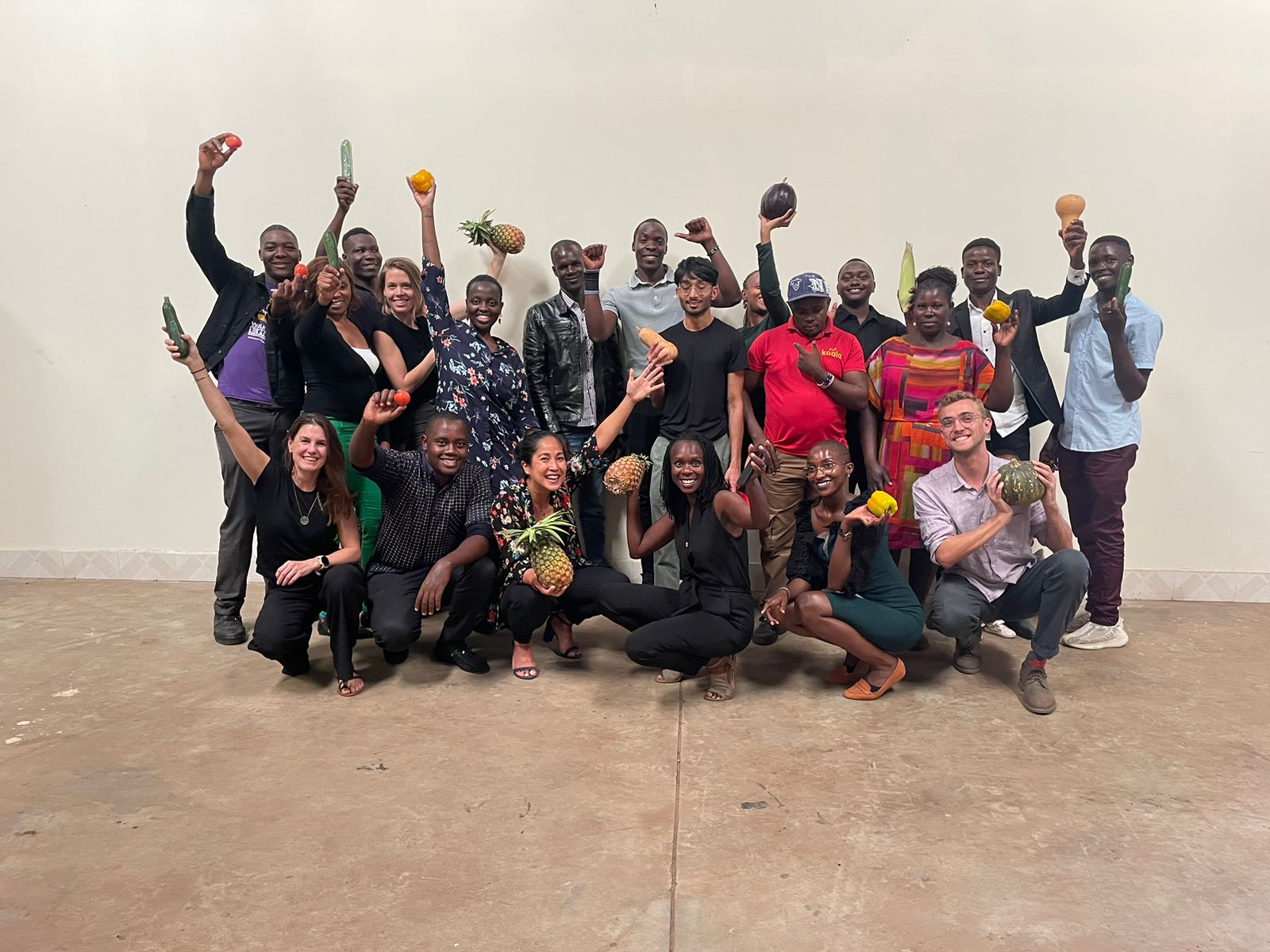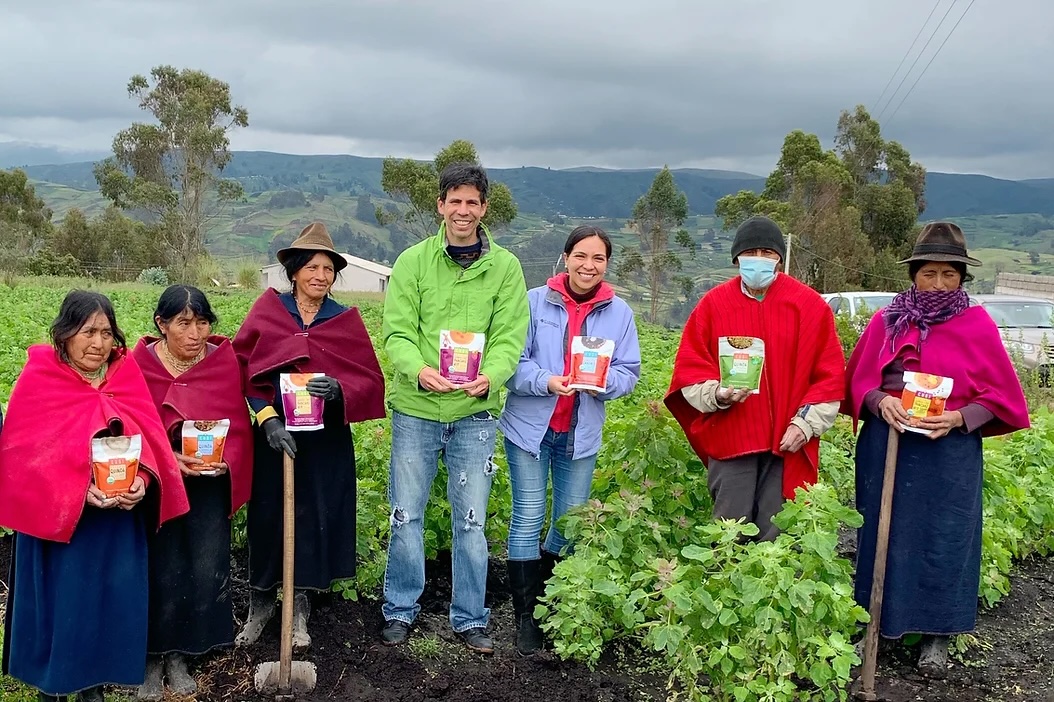An expanding range of financing mechanisms and vehicles are emerging to help private capital providers direct money and resources to their small business communities. Among these, fund of funds are proving to be an instrumental early supply of capital for fund managers investing in small and growing businesses in Africa and the Middle East.
Fund of funds are private investment funds that invest in other private funds aligned with their impact theses. Such vehicles are established in the private equity and microfinance sectors. They’re now emerging in the global small business finance sector to help mobilize the roughly $5 trillion that small and growing businesses need annually.
A new survey from the Collaborative for Frontier Finance finds that fund of funds employ a range of strategies to evaluate local fund managers’ risk, which is in turn helping fund managers transition from raising from angel and high-net worth investors, family offices and foundations to institutional investors. They’re also providing other critical support, such as track-record building, proving fund economics, and contributing capital to warehouse deals.
Evaluating manager risk
Half of local fund managers in Africa and the Middle East include fund of funds among their first institutional backers, according to CFF’s most recent annual network survey. The 60 respondents, all managing small business-focused funds, collectively expect fund of funds to contribute $310 million of a targeted $1.5 billion in total fundraising targets. About $50 million has been raised from fund of funds so far.
The network’s fund of funds backers include the Dutch Good Growth Fund, Mastercard Foundation’s Africa Growth Fund, FSDAi’s Nyala Ventures, Ghana Venture Capital Trust Fund, Egypt’s MSMEDA Fund of Funds and I&P, all of which invest in early-stage managers who may need concessionary capital and time to hone their investment theses and capabilities. More commercially-focused fund of funds include Avanz Capital, Kuramo Capital and 27four Investment Managers.
Fund of funds often consider the biggest determinant of portfolio funds’ performance—and risk—to be the investment teams they invest in. Team cohesion is a key investment consideration says Justin James of Thuso Incubation Partners who invests in emerging, black mid-cap PE fund managers in South Africa.
“Generally, fund managers fail not because they’ve done bad deals but because the dynamics within the team causes a partner to split,” says James.
What do fund of funds’ investment teams look for? The soft interactions in and outside of meetings, historical team links, and team members; external motivating factors. “Do you have one deep-pocketed sponsor, and are they the one pushing the whole thing across? Do the others feel that this commitment to raising a fund is a stretch on them on their personal finances,” says James.
Fund of funds set investment baselines for fund economics and whether teams are sustained long-term. They scrutinize whether team sizes and salaries match the investment thesis, as well as the strength of salary incentives and bonus structures.
“The most important part for us is the analysis of the team itself,” says Hany Asaad of Avanz Capital, investing across emerging markets with a focus on Africa. “The biggest risk we face is that the team is not able to raise enough money and is not able to sustain itself. And in those circumstances, there is a very high attrition rate.”
Most fund of funds exclude solo general partners from their pipeline to avoid key-man risk, and because they like to see a team of general partners with complementary skillsets.
Considering fund economics
Institutional investors, particularly DFIs, typically require fund managers to raise funds of $30 million or more to be considered for investment. One reason is the impression that funds must be at least $30 million to be financially sustainable.
Sixty percent of the funds in CFF’s network are raising sub-$30 million, with fund size constrained by their small ticket sizes and managers’ (lack of) traditional track records.
There is emerging evidence from fund of funds that have been willing to invest in smaller funds that some are reaching viability at much smaller sizes. Thelma Kodowu at Mastercard Foundation’s Africa Growth Fund attests that at $20 million, a fee model of less than 3% can adequately cover market-based salaries and robust due diligence processes.
“Those initiating their journeys in fund management with a fund size below $30 million, coupled with limited or no track record, are adept at devising innovative strategies to manage cash flow effectively,” she observes.
They may adjust their fee structures, taking higher percentage fees during deployment and reducing fees during divestment, for example. They may use permanent vehicles or holding company structures. Or they may use self-liquidating instruments.
“Additionally, they leverage their relationships within their investor network and broader ecosystem to secure pro bono or low-fee support services for both operations and business development,” says Kodowu.
Begaim Sadyrova of Dutch Good Growth Fund’s Seed Capital and Business Development Facility says it is part of catalytic fund of funds’ mandate to support emerging fund managers on their fund development journeys.
“We work with first time fund managers to grow their fund size to a scale that sufficiently proves the model and hopefully brings them close to breakeven, usually at around €10,” Sadyrova says. “And we provide some additional support, like a technical assistance facility, in combination with seed capital, that would bring them to a higher chance of success in raising the second fund”.
Rethinking track record
Fund of funds are often willing to look past managers’ lack of traditional investment track records and instead focus on complementary skillsets.
“We look at your track record, what you’ve previously done in your investment space or in your career, in terms of the investment process, whether you’ve done direct investments [within an] investment firm, or venture building, where you understand the businesses you want to deploy capital to,” Kodowu says.
Teams need to demonstrate consistency between track records they do have, team members, investment strategy and pipeline, as well as a clear understanding of small businesses’ financing needs.
Fund of funds also look for a demonstrable ability to raise capital. Fund managers are encouraged to grow active limited partner networks.
“It’s important that there is an active network that the funds continuously reach out to,” says Sadyrova. “There needs to be a certain level of energy within the founding team. Those that have been quite consistent in reaching out and not only the immediate circle, but a larger circle through second and third parties—we’ve seen them doing all right on the fundraising side.”
Thuso Incubation Partners places a premium on individuals’ fundraising experience. Those with an asset management background, for instance, often come with established institutional investor or asset consultant relationships. Teams coming out of banking may instead be excellent deal makers.
“For people to allocate, there needs to be a level of trust, and trust is built up over a long period of time,” observes James. “The guys who have built that up in other organizations seem to be able to attract money more easily than somebody just walking in the door.”
Strategy-pipeline alignment
It can take new emerging market fund managers three years or more to reach a first close. Many deals can be lost in that time. Fund of funds therefore often look for alignment between fund managers’ investment strategies and pipelines more than robustness of individual deals.
Some go to the extent of due-diligencing pipeline companies to test veracity and alignment.
Having a shovel-ready pipeline can also mitigate the risk of delay when it comes to first investments. Delays in execution causes a significant drag on returns—so much so that 27four Investment Managers builds financial penalties into their contracts if managers do not invest within an agreed period after a first close. That’s because they and other commercial fund of funds need to demonstrate to their limited partners that their assets are producing returns in order to raise further capital.
One way funds of funds are supporting managers’ pipeline opportunities is by supplying deal warehousing capital. As a fund of funds usually takes 100% risk on warehoused assets, they have a direct line of sight into the investment process, enabling them to scrutinize management teams in advance of follow-on investments.
Warehoused assets are also being used judiciously to de-risk funds, thereby helping crowd in institutional LPs.
“The warehouse capital is provided for two reasons other than the track record,” observes Marde van Wyk from 27four Investment Managers. “It provides for better economics in terms of institutional investors coming in. And it potentially has the added benefit of mitigating against the dreaded J-curve when those warehoused assets are transferred into the fund.”
The unconventional due diligence methodologies fund of funds are using to evaluate emerging fund managers’ can inform the broader institutional investor market and support the pipeline of fund managers servicing small businesses in emerging markets.











